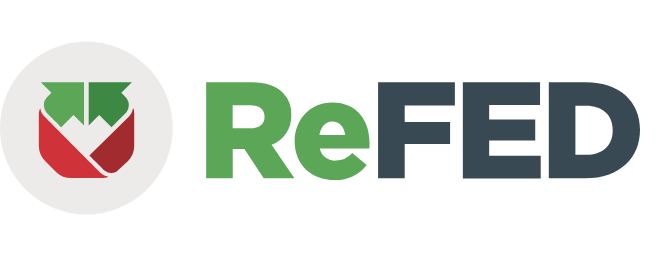The new annual food waste report identifies key statistics, insights, and progress points to inform system wide action.
February 25, 2025 – Today, ReFED, a U.S. -based nonprofit that works to advance solutions to food waste, released From Surplus to Solutions: 2025 ReFED U.S. Food Waste Report, featuring the latest data on the progress, trends, and remaining challenges in reducing food loss and waste in the United States. The report outlines that while we have seen significant momentum in preventing and reducing food from going to waste—and the foundation for progress has been laid—waste remains stubbornly high. As such, accelerated action is needed from all food system actors, from funders to food businesses to solution providers to policymakers, to reduce food loss and waste.
After a dip during the COVID-19 pandemic, quantities of unsold or uneaten food—known as “surplus food”—rebounded in 2023 to an alarming 73.9 million tons or 31% of the food supply at a value of $382 billion or 1.4% of U.S. gross domestic product (GDP). ReFED’s analysis indicates that surplus food is responsible for 4% of U.S. greenhouse gas emissions, the same as driving 54 million cars, or 18% of all registered vehicles in the country. Surplus food also has an outsized impact on natural resources, including water and land. It accounts for 16% of U.S. freshwater withdrawals, enough for every American to shower seven times a day all year. If all surplus food were grown in the same place, it would require 140 million acres of land—an area the size of California and New York combined.
“Despite record high food prices, and increased awareness of the food waste challenge, our analysis shows that surplus food remains high and we’re still far off from meeting the 2030 reduction goal to halve wasted food,” says Dana Gunders, president of ReFED. “But progress is being made, and our hope is that these bright spots demonstrate that change is possible—with the right combination of motivation, stakeholder alignment, and funding.”
Key findings in the report include:
-
Even with increasing food costs, consumers continue to generate the largest amount of waste. Between uneaten groceries at home and restaurant plate waste, consumers waste close to 35 million tons of food annually, costing them $261 billion, or nearly $800 per person.
-
While food producers and businesses generate 21.5 million tons of surplus food annually equating to $108 billion in lost revenue, momentum to address waste is building, with 20% of the top 65 food businesses across foodservice, retail, and manufacturing having specific, time-bound food waste reduction targets.
-
More than $900 million was invested in food loss and waste solutions in the United States in 2024 by public, private, and philanthropic sources. However, despite the significant environmental impact of food loss and waste, only 4% of the $600 billion in global annual investment for climate mitigation and adaptation goes to food and agriculture generally, with an even smaller portion funding food waste initiatives.
-
A $16 billion annual investment over a ten-year period in the 45 food waste solutions that ReFED has modeled could create a net financial benefit of $60.8 billion—a 3.8x return—while diverting 20 million tons of surplus food from the landfill and avoiding 79 million metric tons of carbon dioxide equivalent.
The report also highlights signs of progress in addressing surplus food, including a 25% reduction in unsold food jointly reported by retailers on the West Coast, 100 state-level bills related to food waste being introduced nationwide in 2024, and participation by a growing number of industry leaders in the U.S. Food Waste Pact.
To download the full report, visit refed.org/us-food-waste-
About ReFED
ReFED is a U.S.-based nonprofit that catalyzes the food system toward evidence-based action to stop wasting food. We work to increase adoption of food waste solutions across the supply chain by cultivating and convening the food community, delivering actionable evidence and insights, and seeding and accelerating promising initiatives. Our vision is a sustainable, resilient, and inclusive food system that makes the best use of the food we grow. To learn more about solutions to reduce food waste, please visit www.refed.org.
